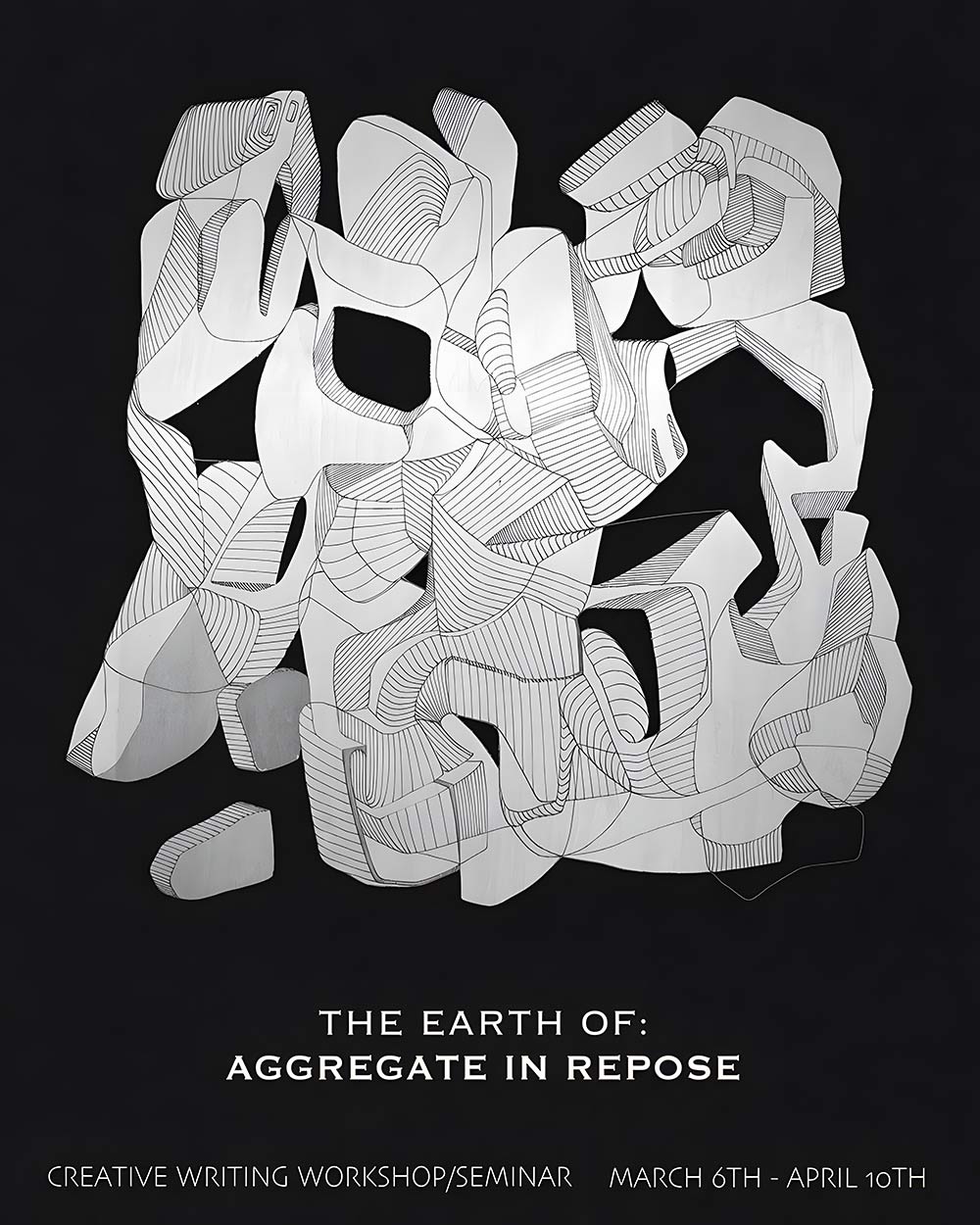We encourage you to be the first mark in a process of organized remembrance. You, as writers, are the atomic shadows, the ash that remains—the aggregate. What, for you, has gone erased or unknown? Or, perhaps, what do you wish to unknow? To what, or to whom, are you and only you a referent? What is lying in repose after a rupture has closed and a new landscape must be reconciled? For the next six weeks we will be asking you to follow a thread hand over fist back to the source.
Aggregate in Repose
Overview
The erasure of histories, for better or worse, is an essential and persistent part of human life, but there is distance to be countenanced here in that forgetting and remembering are necessarily collective acts.
First presented as a virtual program for Arts Letters & Numbers 2022.
WHEN
Spring 2022
WHERE
All classes are held virtually.
REGISTRATION DEADLINE
Registration is closed.

Image Courtesy of Adrianos Efthymiadis – Arts Letters & Numbers
Wherever you go, you will be a polis.
All art is the practice of documentation: to record, perpetuate, live within, or archive. This first occurs by bearing witness. To witness is to participate. It is witnessing that makes all history assimilable. For the purposes of this class, however, the concerns that arise will not be questions of what, how, when, or why to document, but the potential for the erasure of both the document and the ability to document. That is to say, the convergent and divergent boundaries between knowing and forgetting. The tectonic shift that creates new landscapes with old scars.
Where does this narrative happen? It is sliding past the word. When does this narrative happen? Always, and in a singular breath: inhale some, exhale other. To whom does this narrative happen? The reader (as an oceanic plate as you) and the author (as a continental plate as me). Sometimes there is a desire to write the unwritten: What do I know that I do not want to know? Sometimes the need is to unwrite the need: The futility of attempting to summon awareness.
